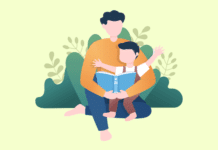Is it Love or Addiction?
An addiction may not necessarily be smoking, alcohol or food, it can be connected to a person also. We may often confuse it with true love, but there might be chances that one is addicted to the person.
Addiction is a psychological and physical inability to stop using a substance or engaging in a behaviour even though it is causing psychological and physical harm. One might feel suffocated and trapped but is actually helpless.
Addiction to a Person
Having an addiction to a person is just as any other addiction. You can have relationship with a substance, object other things like money, power etc. Sometimes it can be a person or a place that acts as your stress buster, adds pleasure and gives you comfort. And once you start enjoying the pleasure it becomes very easy to get addicted to it.
One starts getting dependent emotionally. And in most cases emotional dependency allows your partner to exploit or abuse you as they get to know your weakness.
But knowingly one stays in that abusive relationship or one sided relationship because he/ she is getting pleasure or comfort by being with them.
Emotional dependency… Is it harmful?

Emotional dependence is a personality disorder in which a person with low self-esteem seeks constant security in other people, substances or external factors which covers up affective deficiencies.
Low self- esteem is the main cause of emotional dependency and it starts at an early age. An appropriate example can be when as parents child is conditioned by saying that they will be loved or pampered only when they meet the expectations or complete the desired tasks given. The child feels left out, not being heard or loved by parents or siblings. This lack of love generates low self-esteem and that tends to show up in adolescence. The child tends to be a submissive and tries to please others, looking for love, approval and attention just to maintain a relationship at all costs.
Symptoms of Emotional Dependency
There are few alerts or indicators of being in an emotional dependent relationship:
- When you are unable to say NO to your partner and you have a constant fear of hurting them.
- When the partners needs and desires are always put first. And your own needs take a back seat. You neglect work, family responsibilities just to please your partner.
- When one idealize the partner and neglect all their negative aspects.
- When the dependent avoids conflict and is always ready to apologise knowing that it’s not their fault. In other words suppresses their feelings to avoid arguments.
- When the dependent person changes their tastes, desires and plans according to their partner tastes and desires. Thus their identity gets diluted in order to stay close to them.
- Develops a fear of guilt of not satisfying the partner or has failed to please them.
- Fear of losing the person makes them survive happily even in a toxic relationship.
- The dependent stops socializing or breaks up with family and friends as he/ she knows that they can perceive their suffering and give suggestions to move on or get rid of this toxic relationship.
- Have difficulty accepting gifts/compliments.
How to overcome emotional dependendency
Now that you know you are emotionally invested and becoming a co-dependent and probably wondering how can you change all this. Well old habits die hard. Trust me its going to be difficult but not impossible. Let’s start…
- Take yourself back in time before you were in this relationship. And ask yourself, who you were before? What were your likes? What was your social circle like? You have to start all that again to untangle yourself from this addiction.
- Know yourself, stop suppressing yourself to please others or to avoid a conflict. Getting to know ourselves isn’t self-centred or selfish. It’s a healthy interest and respect for ourselves. Love is being yourself and not just giving and receiving always.
- Take small steps: Like next time you see your partner sitting alone you don’t think of dropping all your work to just entertain him. Instead let he / she be alone for some time.
- Let go of the need for control. If you do this you will end up becoming anxious, stressed and guilty. It can easily put you in a passive position, doing things out of duty and not by choice. A sure sign of co-dependency.
- Move ahead, leave behind the co-dependent. You are fulfilling your own needs to feel valued rather than meeting his needs. However if you find a way to let go of your dependency on him/her for your self-value, then leaving your partner becomes possible.
Remember that co-dependency recovery is a journey. A rather long one sometimes. It is gradual, like peeling an onion. It will take one layer after another before you reach the core. And the process will involve some tears. However, it will be one of the most empowering things you will have ever done.


















What a great piece of article!
Nice post. I learn something new and challenging on sites I stumbleupon everyday. Its always interesting to read content from other writers and practice a little something from their sites.
Great Article
cialis generico https://pudbiascan.strikingly.com/
This is nicely said! !
Im very happy to uncover this site. I wanted to thank you for ones time for this particularly wonderful read!! I definitely appreciated every bit of it and i also have you book marked to see new information in your site.
Thank you for some other fantastic article. The place else may just anybody get that kind
of information in such an ideal manner of writing? I’ve a presentation next week, and I am on the look
for such info.
Bel article, je l’ai partagé avec mes amis.
Thank you for reading my blog.
Amazing! Its genuinely awesome post, I have got much clear idea about from this article.
Nice post. I was checking continuously this blog and
I’m impressed! Extremely helpful information particularly the last
part 🙂 I care for such information much. I was looking for this certain information for a
long time. Thank you and good luck.
Thank you for reading …
Good day! I simply wish to give you a huge thumbs up for
your great info you have got here on this post.
I’ll be coming back to your blog for more soon.
Thank you so much for reading…
Hello colleagues, how is all, and what you desire to say regarding this piece of writing, in my view its in fact amazing designed for me.
Hi! This post couldn’t be written any better!
Reading through this post reminds me of my previous room mate!
He always kept talking about this. I will forward this article to him.
Fairly certain he will have a good read. Thanks for sharing!
Thanks for reading.
Hi there, I believe your website could possibly
be having internet browser compatibility problems.
Whenever I look at your website in Safari, it looks fine however, if opening in IE, it’s got some overlapping issues.
I simply wanted to give you a quick heads up! Aside from that, wonderful site!
thanks for the feedback